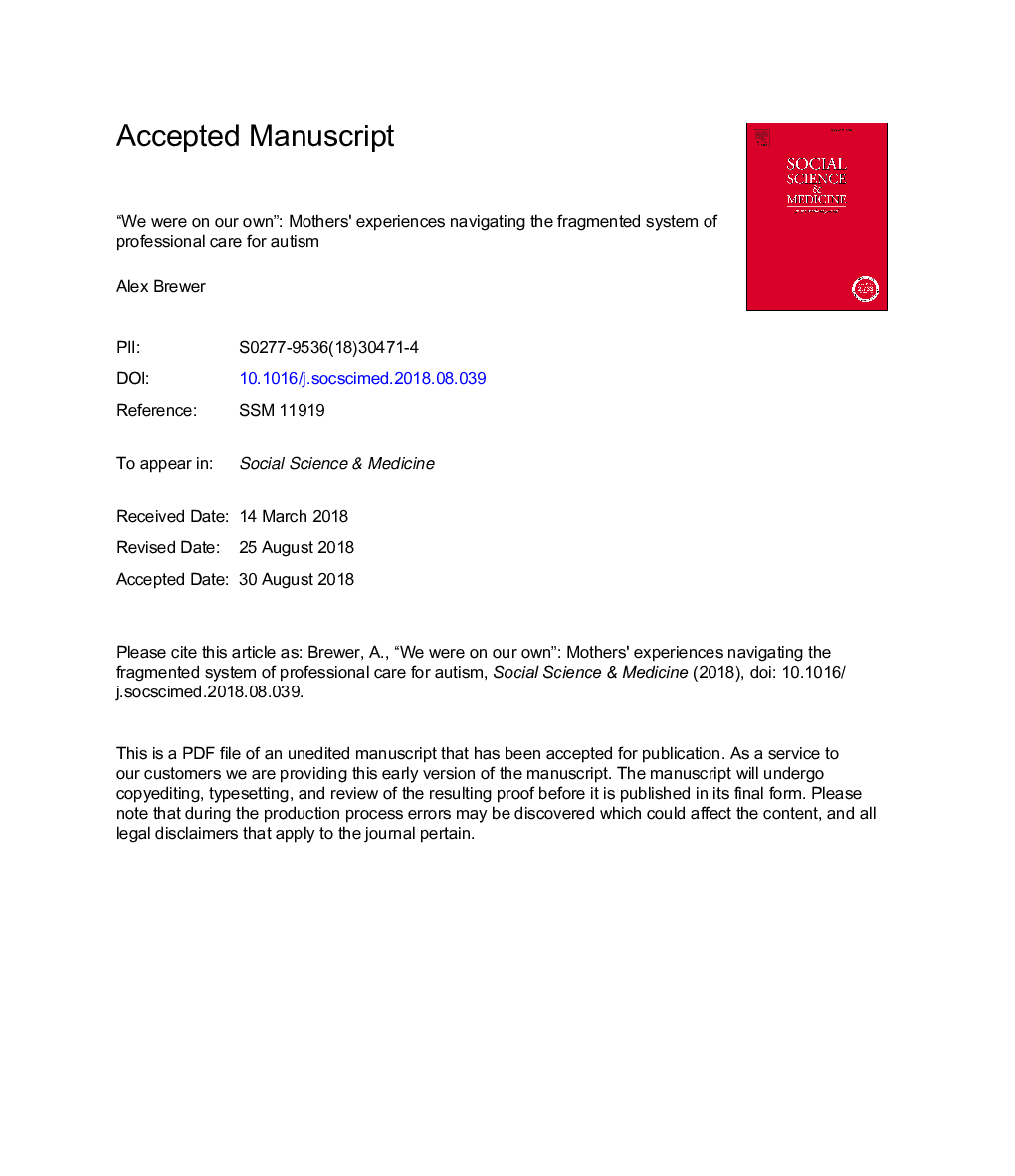| Article ID | Journal | Published Year | Pages | File Type |
|---|---|---|---|---|
| 10147069 | Social Science & Medicine | 2018 | 32 Pages |
Abstract
Autism is a developmental disorder that emerges in early childhood. Treatments for autism span a wide variety of professionals and paraprofessionals in the medical and educational realms. This article draws on data from a survey of 620 parents of autistic children, including 385 written narratives, to examine the experiences of mothers as they engage with this fragmented system of professional care for children with autism. Findings suggest that engagement with treatments sent families into a complex and confusing universe of diagnosis and treatment. The fragmentation of autism's professional jurisdiction between the medical and educational systems meant that mothers struggled to find comprehensive professional care that met the standards recommended by leading medical research organizations. Many mothers found it necessary to reduce their workforce participation in order to obtain and maintain their children's treatment regimes, a phenomenon that transcended social class. However, the consequences of reducing work had differential impacts on families. While married and high socioeconomic status mothers were more insulated from the potential negative effects of losing one partner's income, single and low SES mothers experienced greater precarity. These findings connect the structure and arrangement of professional jurisdictions to the experiences of parents, suggesting ways that the fragmentation of professional care for autism can have negative impacts for women, single mothers, and low SES families.
Related Topics
Health Sciences
Medicine and Dentistry
Public Health and Health Policy
Authors
Alexandra Brewer,
